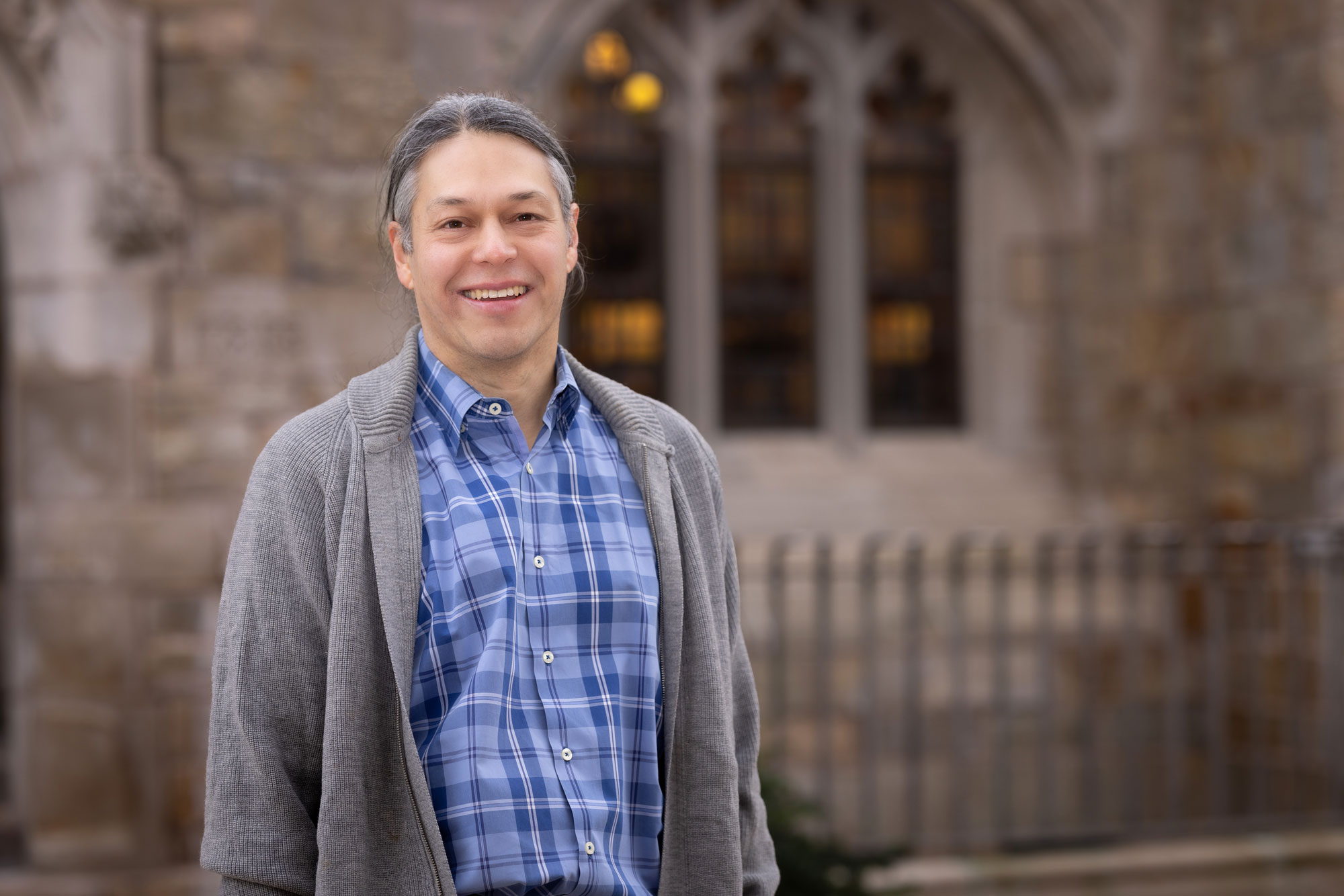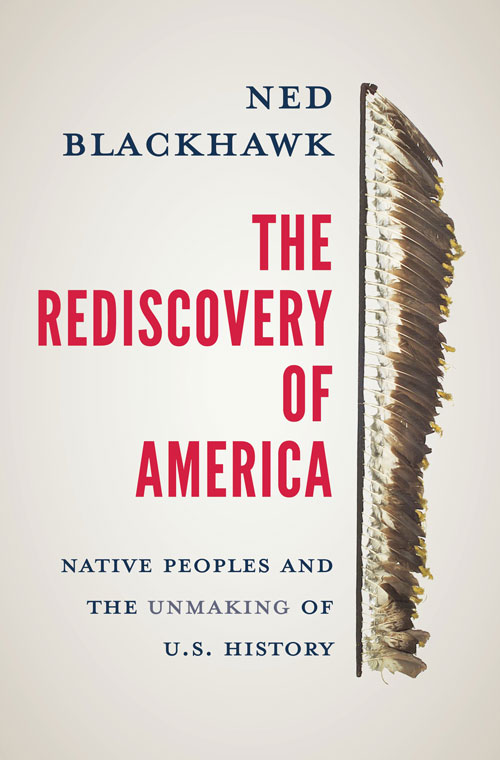A new history A new history A new history
Ned Blackhawk won the National Book Award by centering Native people's history.
By Hannelore Sudermann | Photo by Dan Renzetti | March 2024

When Ned Blackhawk, ’99, was in grade school in the 1970s, American history was taught from the perspective of European colonists and settlers. The lessons, which started with the arrival of Christopher Columbus in 1492 and carried the tale from east to west, described a vast and vacant landscape with a smattering of human inhabitants.
The textbooks went on to tell how, over several centuries, waves of white settlers flowed west into the wilderness, taming the landscape, tapping resources and building farms, then towns, then cities. But that version is far from the full picture, says Blackhawk (Western Shoshone), a professor of history and American studies at Yale University and one of the nation’s leading Native American history scholars.
In November, Blackhawk won the National Book Award for “The Rediscovery of America: Native Peoples and the Unmaking of U.S. History.” His nonfiction book, which was published by Yale University Press, reconsiders our nation’s narrative, this time more fully seeing Native American people in time and in events over 500 years, from the arrival of the first Europeans to today.

From the National Book Foundation judges: “Blackhawk ‘rediscovers’ America, guiding his readers to a novel understanding of our nation’s past and, hopefully, our collective future. This is an enlightening, transformative, and enduring work.”
Long before Columbus stepped foot on our shores, he writes, North America was home to millions of people. It had powerful empires, cities, trade, power, wars, politics and cultures. As the Spanish, French and English colonists intruded, Indigenous communities adapted, avoided and, often in the spirit of protecting themselves and their holdings, attacked. From his first chapters, Blackhawk reframes our national narrative as one of encounter rather than discovery.
Highlighting key moments and events throughout U.S. history, Blackhawk captures the fragility of the early settlers who were ill prepared for survival and depended on help from the Indigenous communities around them. He also points to the Indigenous origins of the American Revolution and to the presence of Native people in the minds and actions of the country’s founders often with the intent of assimilating or eradicating them. In the Declaration of Independence, for example, the text quickly moves from all men being created equal to describing “merciless Indian savages” who fought on behalf of England.
Covering more recent history, Blackhawk recounts the details of Washington state’s Fish Wars of the 1960s and 70s and the successful legal action to uphold tribes’ treaty rights to fish at their usual and customary sites. Looking back to his time as a student, he says, he didn’t realize the importance of the community around him. “I’ve come to see a little bit regretfully that I lived in the center of an environment rooted in the history of active political advocacy that has made Indian sovereignty legitimate not just across the Northwest, but across North America,” he says.
Blackhawk was drawn to the UW in 1994 to pursue his doctorate with Professor Richard White, ’72, a well-known scholar of Native American and environmental history. When he arrived, Blackhawk encountered far fewer Indigenous students and faculty than he might today. Nonetheless, he found a community. Staff and faculty, including Augustine McCaffery, ’85, ’92, ’12, and Associate Professor Cheryl Metoyer, made the University welcoming and helped him navigate the gray and grueling early years of his Ph.D.
“When he came to Washington, I recognized right away then what we see now, he was very smart and a stronger and stronger writer,” White says. The professor encouraged Blackhawk’s interest in researching American Indians and colonists in the Great Basin, which became the focus of his dissertation. “Ned had something you can’t teach: He could figure out what is a significant issue and what can be explored,” says White.
That is essentially what Blackhawk has done again—only this time creating a sweeping history of Indigenous North America drawing from recent scholarship and reinterpreting events from a fresher standpoint. “Ned’s book is extraordinary,” White adds.
At the start of his academic career teaching Native American history, Blackhawk was dissatisfied with the pervasive narratives that seem to overlook significant scholarly and academic work featuring Indigenous people. “I have always felt that Native American history has been marginalized in the study of American history,” he says. “But it is as important as other central fields of American history.”
Even today’s most popular historians—those who frequent the New York Times bestseller list—seem to forget or at least omit the Native Americans, Blackhawk says. Or they describe the Indigenous experience as a homogenous event. But finding the Native American people in history “may not be as hard as it sounds, but you have to be really committed and conscious of the depth of the subject,” he says.
The sources are out there. For well over 100 years, historians, anthropologists and other scholars have been exploring Indigenous history. But major popular and academic publishers have not sought to legitimize the field among their publications, he says, adding, “That’s the world of academic underdevelopment and underrecognition that I am working to expose.”